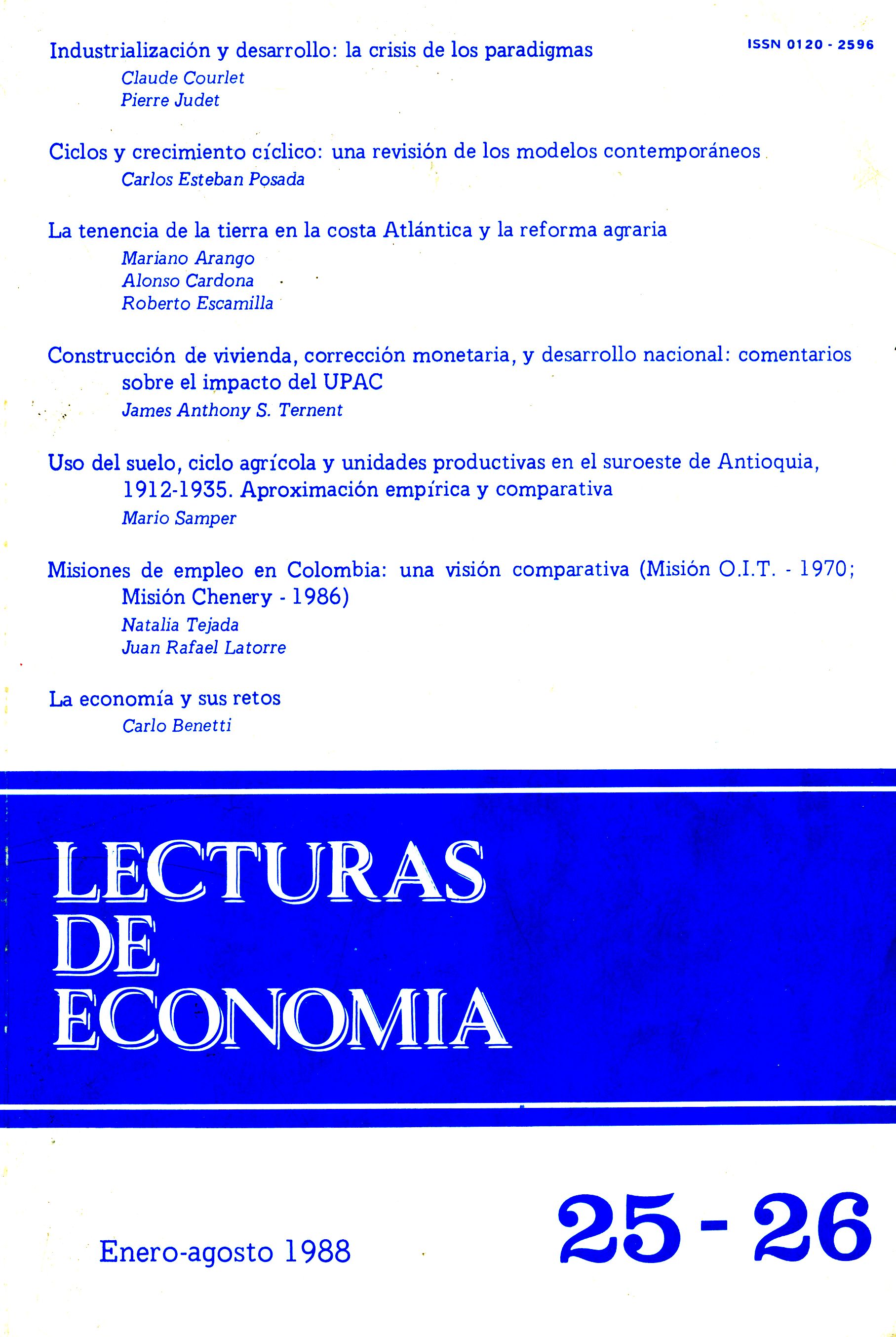Industrialización y desarrollo: la crisis de los paradigmas
DOI:
https://doi.org/10.17533/udea.le.n25-26a7760Abstract
• Resumen: La industrialización y el desarrollo del Tercer Mundo constituyen, desde hace cuarenta años, un centro de interés del análisis económico. Sobre el particular predominaron, hasta hace poco tiempo, dos corrientes de pensamiento: para unos, el subdesarrollo era la expresión de un simple retardo; para los otros, era el producto histórico de la industrialización y del desarrollo de los países capitalistas avanzados. Pero en los últimos años las certezas se han debilitado y los cambios que han ocurrido en el Tercer Mundo dejan mal situada la simplicidad de las clasificaciones.
Los esquemas tradicionales, liberales o radicales, se ajustan difícilmente a la realidad actual en la que están presentes, entre otros fenómenos, los nuevos países industriales; frente a la rigidez de los modelos es necesario revisar los criterios y las condiciones del desarrollo en un plano de modestia, realismo y análisis específicos.
• Abstract: Third World industrialization and development have been a focus of attention for economic analysis. In relation to these topics two approaches have been predominant.
To some analysts, underdevelopment was a result of backwardness; to others, it was a historical product of industrialization and development of most advanced capitalist countries. In recent years those certainties have lost credibility and Third World last realities situate in bad shape the simplicity of previous classifications.
Traditional schemes, liberal or radical, hardly adjust to the present realities, in which appear, with other phenomena, the new industrial states. In considering the inflexibility of the models, it is quite necessary to reexamine the criteria and development conditions on a basis of modesty, realism and specific analysis.
Downloads
Downloads
Published
How to Cite
Issue
Section
License
This page, by Universidad de Antioquia, is licensed under a Creative Commons Attribution License.
Authors who publish with this journal agree to retain copyright and grant the journal right of first publication, with the article licensed under a Creative Commons Attribution-NonCommercial-ShareAlike License allowing others to share it as long as they acknowledge its authorship and original publication in this journal.
Authors can enter into separate, additional contractual arrangements for the non-exclusive distribution of the journal's published version of the work (e.g., post it to an institutional repository or publish it in a book), provided that these arrangements be not for profit and the journal be acknowledged as the original source of publication.
Authors are permitted and encouraged to post their papers online (e.g., in institutional repositories or on their websites), as it can lead to valuable exchanges as well as greater citation of the published work.







